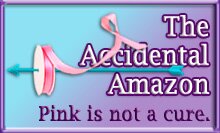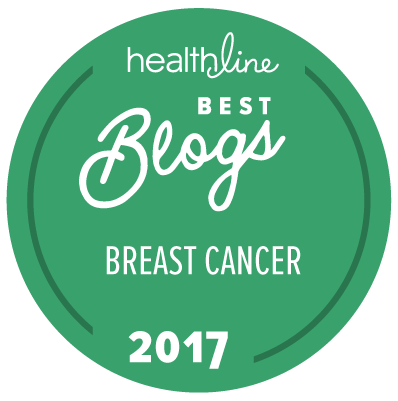Calling the Shots — A Book Review
Recently, I had a new homecare patient who had visited the ER with acute symptoms of a pinched nerve in her spine. She had pain, muscle spasms, and burning numbness all the way down one leg. She’d had an X-ray which was pronounced negative for a fracture, but the causes of pinched nerves usually cannot be confirmed without an MRI. She was offered no advice about pain management. Instead, she got sent home with the suggestion that she see her regular doctor.
She did see her primary care doctor, who referred her to a spine specialist. The specialist did order an MRI. The MRI showed not one, but several contributing factors that explained her symptoms. The specialist then referred her to a neurologist to rule out a few other things, but did not offer any treatment. She saw the neurologist, who ordered lab tests. While she was waiting to get those tests, her primary care doctor referred her to our agency for home nursing and physical therapy. By then, six weeks had gone by. In all that time, none of these doctors had prescribed anything for her pain, except to suggest she take tylenol, an analgesic that may reduce fever and muscles aches, but does not reduce inflammation or nerve pain.
When a pinched nerve occurs, it means the nerve root that is exiting the spinal cord is inflamed from being compressed, and is causing all kinds of nasty sensations down one limb, which can lead to permanent muscle weakness and peripheral nerve damage if not addressed. It is standard practice to treat a pinched nerve by prescribing a strong anti-inflammatory, sometimes even a short course of a steroidal anti-inflammatory, and often to prescribe something like neurontin to mitigate the altered nerve sensation. This is not rocket science. By the time I saw this patient, fully six weeks after her symptoms started, none of that had been done. She’d tried tylenol, but it hadn’t really helped. Big surprise.
“Why didn’t anyone give you something else for your pain?” I asked her.
“I don’t know,” she said.
“Did you ask them for something?”
“Well, no. I thought they would realize how painful this is, and that tylenol was the best thing they could suggest.”
Meanwhile, I proceeded to educate her, advocate for her, and do what I could to relieve her symptoms. She likely needs surgery or at least anti-inflammatory injections in her back. She is feeling better, but is still trying to find a doctor who will offer an acceptable solution.
This kind of scenario gets repeated far too often in our healthcare system, and illustrates two of the primary issues addressed by author and blogger Beth Gainer in her book, Calling the Shots. The first issue is how doctors may not offer adequate and timely help in the first place, including how to manage basic symptoms like pain. The second is how patients assume that doctors know how they’re feeling and don’t insist on more effective help. Neither one is a good healthcare strategy.
In a perfect world, we wouldn’t need a book like Calling the Shots. Nor would the author herself have had to experience the sometimes appalling but not uncommon slings and arrows of the healthcare system that led her to writing it. But if you’ve ever been a patient, especially one with a serious illness or injury, or have ever advocated for a loved one who’s a patient, the odds are high that you know all too well that the healthcare system is far from perfect.
I know firsthand how imperfect it is. As a patient, I’ve endured many experiences similar to the ones that Beth describes. As a clinician working in homecare, I spend virtually every work day trying to prevent such experiences from happening to my patients. You might think that clinical experience would have made it easier for me to navigate the system and to prevent such experiences from occurring to me when I was diagnosed with breast cancer. And you’d be wrong. Indeed, it was largely because of those experiences that I started this blog.
Don’t be surprised if, like me, you manage to read Calling the Shots in an afternoon. But don’t let that fool you. The book may be concise and easy to read, but it packs a powerful message. And that message is that you are and must be in charge of your medical care, and that the outcome of the treatment you receive may depend entirely on how well you take charge of it.
In straightforward prose, with examples drawn from her experience, Beth outlines practical steps you can take to make sure you are getting what you need, even if you’re not sure what that is. It can be challenging to advocate for yourself when you are at your most vulnerable, but even then, Beth’s concrete advice can help you wade through your own uncertainty. When you are not up to advocating for yourself, she describes how to identify others who can help advocate for you, and how to restore the feeling that you are in control.
The more serious your health issues may be, the more complex and difficult your treatment may be, the easier it is to feel like hanging onto the reins is like trying to herd cats. All too often, we can feel that, rather then heading up our own healthcare team, we are at the mercy of schedulers, gate-keepers, slow diagnostics, and miserable side effects. Beth draws from her own experience of all of these issues and more to outline steps we can take to identify how we feel and what we need. Those steps can be accomplished with tactful, but assertive, direct communication. If we still are not getting what we need and want, we can and should fire those clinicians who bully or obstruct us, and find others who won’t.
And we have every right to do so. If there is one overriding message to Calling the Shots, it is to remind us that we have rights as patients, that we should be the reason for the healthcare system, and not its victims. Read this book and empower yourself.











This is a much needed book with a HUGE impact on the type of care ultimately delivered. Thank you for recommending it and highlighting what shortfalls exist when we don’t advocate for ourselves. Like you, I learned with cancer. I’ve watched a friend die from the same because she didn’t feel able to demand the tests and treatments she knew she probably needed. On the other hand, it can very well become a Catch 22. By demanding that the pain in my shoulder (I’ve detached the staples that repaired an 85% labral tear some years ago) be taken seriously and treated with more than Tylenol, I managed to get myself listed as “drug seeking” and have been treated abominably over it. I cannot have the surgery I need to repair it again because even with the ACA, and my $350/month premiums, I cannot meet the high deductible that kept me from being priced out altogether. The surgeon is willing to work out a payment plan, but the hospital and the PT clinic are not. No pain management for drug seekers, but no relief for the underlying cause has left me self advocating into the black hole that is so called modern healthcare. I admire you for not running screaming into the hills with the stories I know you hear and see every single day. May your words reach those who have been unsure how to stand up and say, “This isn’t working. Look closer. Look harder. Listen. Heal.”
I still cannot believe that clinicians with any sort of education and experience can’t distinguish patients with conditions that cause real pain from ‘drug-seekers.’ It’s appalling, Webbie. And what’s with that hospital and that PT practice not being willing to work something out? Such bullshit. It’s crazy and hard to be a patient in need or a clinician who actually cares.
Bought.
Thank you for the pointer.
Hi Kathi,
My copy just arrived and I am looking forward to reading it. Self-advocating is a skill that requires practice. Unfortunately, when we aren’t feeling well, it can be even harder to navigate through medical mumble jumble of any sort, but it’s even more important that we do. Books like this are treasures for patients heading into the maze. Great review. Thank you.
Thanks, Nancy. It’s a great read.
Thank you so much, Kathi, for this fantastic review of my book. I so appreciate it. As you know, as a patient, it is so easy to feel disempowered. We need to rally ourselves to speak up, especially in our dysfunctional medical system. Thank you once again, dear friend!
Beth, it was my pleasure. Thank you for reliving all the horribleness you went through to write it. As a PT, I love practical suggestions, so I couldn’t help but love your book!! I wish I could give it to all my patients. xoxo, Kathi
Kathi, thank you for this review. I received my copy and I am looking forward to reading it. My biggest challenge is to be able to negotiate and know how to keep a balance. I sometimes say too much and I worry I will be labeled as being “difficult”. But I always felt like oncology was different in a sense that patients are allowed to feel/say/express anything they want especially because it’s a serious and difficult situation. It’s a totally different game and one we can’t afford to mess with. Every decision is important. Now that I am a cancer patient, the rest of my non-cancer doctors do more than what I would expect them to do, because they now know cancer can happen to me. I am still trying to figure out how to behave with my oncologist. And the culture in my hospital is cold which makes things a little bit more difficult. I do like her and appreciate her. But I agree self-advocating is extremely important. And I think she understands that, I hope.
Rebecca, I’m glad your non-cancer docs are stepping up. And you make a great point about how just the environment and culture of healthcare can make it hard for doctors to provide the help they’d like to. It’s a constant struggle in my own job. That makes it all the more important for us patients to speak up. xo